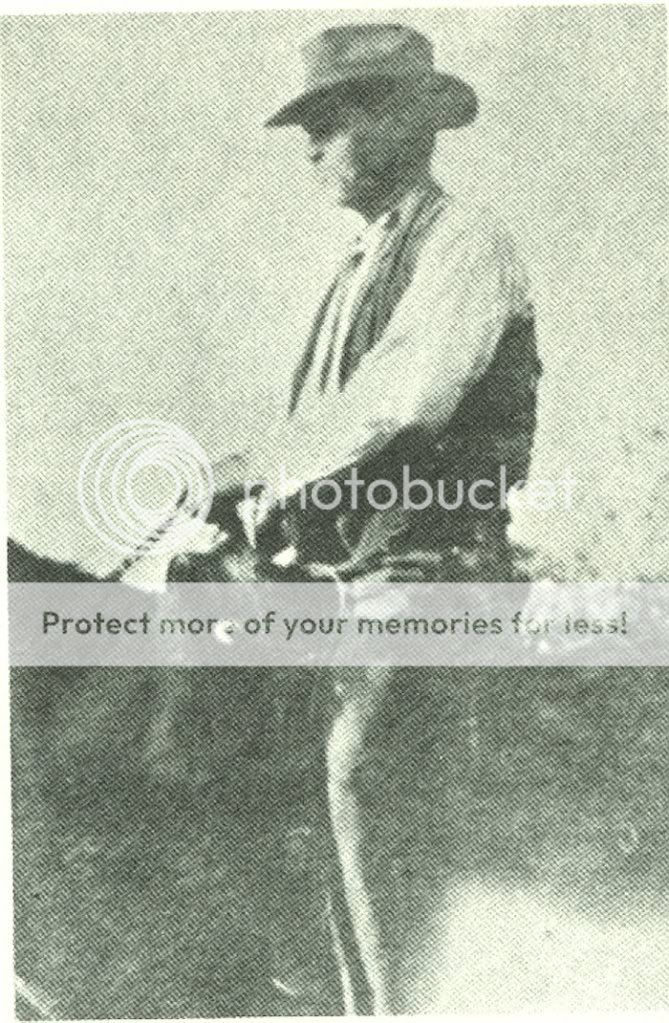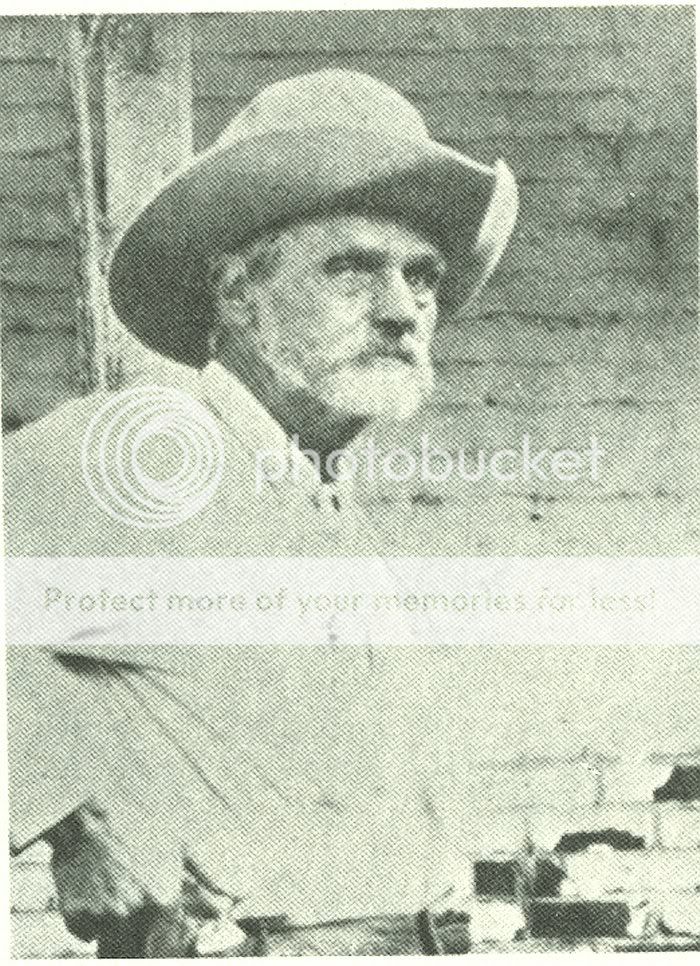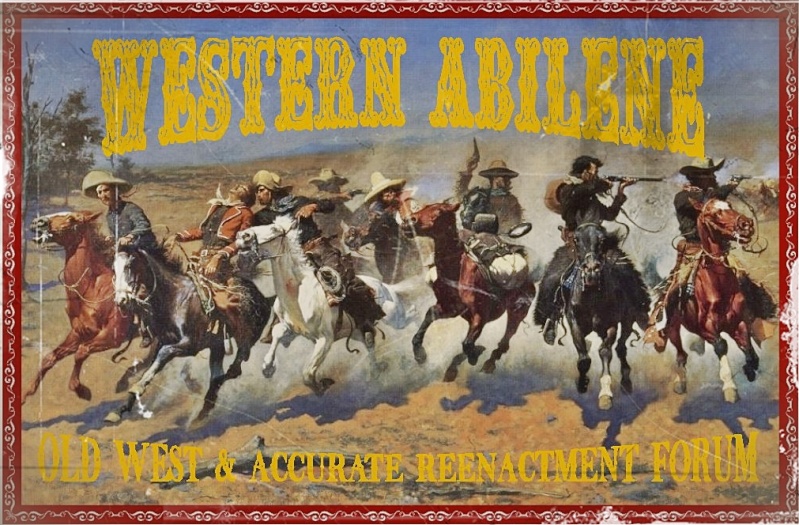

George P. Durham
George P. Durham: He is one of the very few Texas Rangers who served in the 1870s and left an account of his experiences, for which we are grateful. James B. Gillett and John L. Sullivan are two others whose memoirs have been preserved and kept in print by various publishers. Durham made his fame and his fortune under two bosses: Texas Ranger Captain L. H. McNelly, and Richard King, the leading cattleman of the Southwest. The quality of leadership inherent in both those kings of Texas was contin-ued through Durham in his many years as a deputy sheriff and caporal of the King Ranch’s El Sauz division.
Durham related his experiences as a Texas Ranger to newspaperman Clyde Want-land. The tale he told was first published in a series in West magazine and then put out in book form by the University of Texas Press in Austin. The eminent historian Walter Prescott Webb provided a forward to the 1962 edition, which has gone into its third printing as of 1975 and has been reprinted since then.
George Durham was a Georgia native, born in 1856. His father survived the actual fighting of the Civil War, but he lost nearly everything when General Sherman marched successfully to the sea. George’s future then looked bleak, as he would have to help rebuild what little the ravages of war had left the family. Later, looking back on his youth, he remembered that he was “nothing but a big hunk of a farm boy straddling his plow horse, with a few victuals and a pistol.”
Rather than staying on his father’s farm, however, young George chose to leave home and head for Texas, as many a young man did in those trying times. If his mem-ory served him correctly, Durham entered the Lone Star State at the age of nineteen. All he would need for his future was a better horse and the pistol he carried with him.
After landing in Texas, Durham “drifted up along the coast,” inquiring everywhere about Captain McNelly. Apparently, he knew of the captain due to his father and McNelly fighting together during the war in Louisiana. Eventually, Durham arrived in Washington County and finally met McNelly at the post office in Burton. Durham had never encountered the captain before, and he had an image of McNelly in his mind as a man who would be “big and hairy, with his pistols gleaming.” What McNelly proved to be was a man who could pass for a preacher and a “puny one at that.”
After a week working on a Burton farm, Durham, almost by accident, learned that McNelly was rounding up men for his Ranger company. He “interviewed” for a position, and McNelly signed him up. Durham recalled the date as April 25, 1875. He later re-membered it as “the biggest day in my life up to then,” next to his marriage to Caroline Chamberlain, a niece of Mrs. Richard King.
Under McNelly, who was then captain of the Washington County Volunteer Militia Company, young Durham served during the most exciting years of the Texas Rangers. He saw considerable action in the Southern portion of the state, as well as in Mexico. He also participated in the notorious Sutton-Taylor feud of the DeWitt County area. As caporal, or “straw boss,” of the El Sauz Division, Durham had great responsibility over men and cattle. Serving alongside him during the Ranger days were Lieutenants L. B. Wright and T. C. Robinson, and Sergeants L. L. Wright, Roe P. Orrell, and John B. Armstrong. None had the desire to rise in the ranks, but all experienced adventure, and all practically worshipped Captain McNelly.
Durham’s first experience under McNelly was pursuing cattle thieves from across the Rio Grande. A group of raiders had attacked the little community of Banquette on Good Friday, 1875. Thomas J. Noakes’s mercantile store, which also housed the post office, had been burned, but the Noakes family managed to escape. In the following weeks, McNelly and his men broke up the various Anglo mobs who sought revenge against virtually any Mexican. The captain also put out the word that he and his men represented the only law in the Nueces Strip.
Following a meeting with Captain Richard King (who may have been primarily re-sponsible for Governor Coke’s sending McNelly to the Nueces Strip), McNelly and the company were better supplied with horses and weapons. With King’s Santa Gertrudis Ranch behind him and the wild land of the Nueces Strip in front, Durham had “a prime bit of horse flesh between my knees” for the first time, which “always does something to a man.” All the men now had good rifles and good pistols. They also were “behind a leader who didn’t bobble or look back; a leader who had done nothing but win; a leader that the governor was betting on to bring law to the Nueces Strip.”
McNelly scored a major victory over the raiders in June. He had learned through his spies that a party of raiders was planning to cross the herd over on a certain day. This knowledge was obtained after capturing two suspected raiders and applying methods of interrogation that would not be acceptable to any force observing the rules of war.
The battle between McNelly’s Rangers and Juan Cortina’s raiders took place on June 12. It was fought on the same ground as the Mexican War battle at Palo Alto, which is near Brownsville. It was Durham’s first engagement against an enemy, and he experienced moments of cowardliness much like any other young man. When his horse went down, Durham managed to grab his carbine and jump clear. He describes his reaction:
[I] prayed, and meant it. Every bone in me said turn back. I couldn’t go another foot closer. I was paralyzed. It hadn’t hit me so strong as long as I had a horse under me. But now, afoot in that muddy Resaca, I couldn’t move. So I prayed for the Good Lord to not let me turn back.
Captain McNelly was close by, and he opened up with his pistol, an action that Dur-ham says “answered my prayer.” Durham splashed ahead, his Sharps cocked and ready to fire. He recalls this incident, which was the first time he killed a man and per-haps the first time he even shot at one:
Three or four steps closer, and I had me a target. He came up from the shelter of a clump of scrub salt cedar. His hat showed first, and he was in my target area—right smack dab in front. He came up to get away; he was turned for a horse in the read. Under that big fancy beaver hat I saw a white scar down the right cheek, from the
hairline to the chin. I got that scar in my sight and dropped the hammer. Both hat and head seemed to explode.
With this feat, Durham “quit being a scared country boy. I was a man. A Ranger. A Little McNelly."
The local newspaper provided a succinct report of the Palo Alto battle:
To-day [McNelly] made a forced march of twenty-five miles. The raiders saw they would be overtaken, and drew up on the bank of a wide slough and opened fire. McNelly moved at a trot, and ordered his men not to fire. The raiders ran when he was within a hundred yards of them. He pursued, and succeeded in flanking them with three men. They halted and fought desperately. McNelly’s horses were jaded, and but seven men were able to get into the fight. All the raiders, twelve in number, were killed. Berry Smith rushed in the midst of them and was shot by their leader, Camalo Lerma. The rangers had but two horses killed and two wounded. They took 250 beeves, most of them Captain King’s. The fight occurred twelve miles from town. . . .
The raider casualties actually numbered fifteen, with one wounded man escaping. The dead were buried in a trench somewhere in Brownsville. Besides the recovered beeves, McNelly later recaptured 300 head of cattle as well as 40 head of horses. McNelly was not only punishing raiders but also recovering stock stolen from Texas ranchers.
Unlike Durham, one Ranger did not reach his days of manhood. L. B. “Berry” Smith, the youngest of the command, received a bullet that proved to be fatal. Young Smith was the only Ranger McNelly lost in the line of duty. McNelly took his body into Browns-ville and gave him what amounted to a state funeral. The captain, the Rangers under him, two marching bands, citizens, and two companies of US soldiers from Fort Brown followed the hearse. The noted John S. “Rip” Ford was parade marshal, and soldiers fired a salute over his grave in the Brownsville City Cemetery.
The next important engagement the Rangers had was not on Texas soil, but on the south side of the Rio Grande. McNelly would be breaking international laws by crossing his men over to Mexico to recover stolen stock. At one o’clock in the morning, Novem-ber 19, 1875, he planned to cross the river, intending to strike the camp of the raiders, also known as Las Cuevas. Before proceeding, he gave a little pep talk to his men:
I can’t order a single one of you men to go with me. You were hired to fight in Texas, not Mexico. I can’t order you, but I sure need you. I need every one who’ll cross with me, every one who’ll volunteer..
We’ll be on our own. I can’t guarantee to bring you back. All I can guarantee is to lead you up to a dang good scrap. I won’t send you—I’ll lead you. If you don’t volunteer it won’t be held against you or show on your record. It’s squarely up to you. Take all the time you need to make up your mind. If any decide to go, step across this trail to this side.
Twenty-six Rangers crossed the line, as men in the Alamo had done nearly six decades before. This time, the end result would be far different. Dawn was just breaking the fog when McNelly found his object, Ran-cho Las Cuevas. The few men on horseback rode through and those on foot followed, shooting at all able-bodied raiders. Several Mexicans were killed and wounded before McNelly discover he had hit the wrong village—Las Cachuttas instead of Las Cuevas!
McNelly had lost all elements of surprise, and he knew he would soon be outnumbered. He ordered his men back to the river, where the banks would allow some cover for the anticipated counterattack. During the ensuing engagement, the Mexican leader, Juan Flores Salinas, was killed.
The Rangers stayed in Mexico until promises were made that the stolen cattle would be returned and the thieves would be turned over to American authorities. The vows were only partly kept, however. McNelly and a squad forced Mexican officials to round up as many stolen cattle as they could find and turn them over to him. This was done, but only after McNelly had threatened to shoot the officials if the demands were not carried out.
With cattle recovered, it now became necessary to get the animals back to their rightful owners. Those belonging to Captain King were returned, driven by a group of Rangers including Durham, William Rudd, Ed Pitts, and William C. Callicott. At King’s Ranch, the quartet of Rangers returning stolen cattle was considered a near miracle. It was the first time stolen stock had been returned.
King had a celebratory meal prepared, but Durham and the others, ashamed of their dirty clothing and unshaved beards, refused to enter what they considered a fancy dining room. Undeterred, King had his men set up a table in the mess hall, and all ate together. The women provided a special cake for the occasion decorated with the words, “Compliments of the King women to The McNelly Rangers”
In recognition of the historicity of the event, King had his vaqueros saw off the left horns of the cattle and then put the animals out to a pasture. The cattle were not to be shipped or traded; they would be a constant reminder of what McNelly had accom-plished. (When McNelly died in September 1877, Captain King paid for the impressive monument that now marks his grave in Burton.)
No other Ranger experience ever compared to riding for Captain McNelly. When he was dropped as commander due to his high medical bills, the state authorities replaced him with Lee Hall. Many considered that decision unfair. They felt Sergeant John B. Armstrong, who had extensive experience, was a better choice. But Hall remained the new commander.
Perhaps the most memorable action of Durham’s final months as a Ranger oc-curred in DeWitt County on December 22, 1876. Lieutenant Hall and a handful of men, including Durham, approached the house of William Cox. He was one of seven men accused of the double murder of a DeWitt County doctor and his son. When Lieutenant Hall announced his presence at the Cox house, the outlaws initially wanted to fight. Hall responded, “Now, gentlemen, you can go to killing Rangers, but if you don’t surrender, the Rangers will go to killing you.” That took the fight out of the men, and they surren-dered without gunfire. All stood trial and were ultimately acquitted. This was perhaps Durham’s last act as a Ranger, and it also helped to end the notorious Sutton-Taylor feud, which had lasted for many years.
Durham’s service record shows he was a Ranger from April 1, 1875, through Au-gust 31, 1877. Durham never rose above the rank of private. His service records, now preserved in the Texas State Archives in Austin, reveal only when he enrolled and when he mustered into a different pay period. The earliest is dated April 1, 1875, and another shows pay earned from July 26, 1876, through February 1, 1877. When Lieutenant Hall took over after McNelly‘s firing, Durham enrolled again, but only from January 25 through August 31, 1877, when he was stationed primarily in DeWitt County. Durham’s oath when going into the Special State Troops (the new name for McNelly’s Company) is dated March 2, 1877. The two enlistment papers are dated at Clinton and then at Cuero, today the county seat of DeWitt County.
Not long after Durham ended his career, Captain Richard King hired him to work on his ranch for the impressive amount of $60 per month. During the next few years, Durham drove King to meetings in Corpus Christi, San Antonio, and Brownsville. He also worked at a cow camp on the Laureles division of the ranch. He worked his way up to be caporal, or “straw boss,” on the Santa Gertrudis with pay at $75 per month. Dur-ham’s work so impressed Captain King that he ultimately raised his pay to $90 per month.
In 1882, Durham was general foreman of the El Sauz division. During that time, he married Mrs. King’s niece, Caroline Chamberline, who was the girl of his dreams. He had met her back in 1875 when he was one of the quartet of McNelly men who returned cattle recovered from Mexico. Caroline died in 1915, and George followed on May 17, 1940. He was 84 years of age and certainly the last of the McNelly Rangers.
